Search
Remove Ads
Advertisement
Search Results
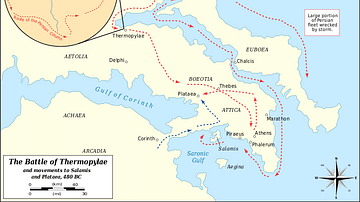
Definition
Battle of Thermopylae
Thermopylae is a mountain pass near the sea in northern Greece which was the site of several battles in antiquity, the most famous being that between Persians and Greeks in August 480 BCE. Despite being greatly inferior in numbers, the Greeks...

Definition
Ancient Greek Music
Music (or mousike) was an integral part of life in the ancient Greek world, and the term covered not only music but also dance, lyrics, and the performance of poetry. A wide range of instruments was used to perform music which was played...
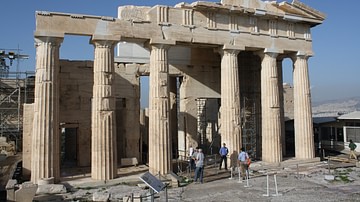
Article
Pausanius' Guide To Ancient Athens
Pausanius (l. 110-180 CE) was a geographer and historian who traveled extensively, taking notes on points of interest, then wrote on them in guide books which could be used by tourists visiting the sites described. His works have long been...
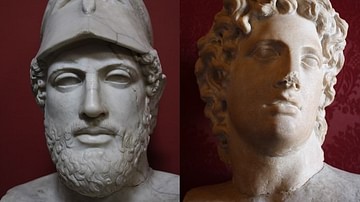
Definition
Plutarch
L. Mestrius Plutarchus, better known simply as Plutarch, was a Greek writer and philosopher who lived between c. 45-50 CE and c. 120-125 CE. A prodigious and hugely influential writer, he is now most famous for his biographical works in his...
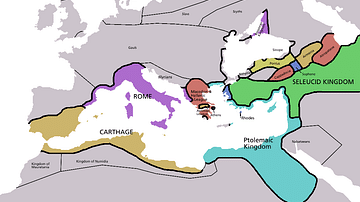
Definition
Hellenic World
The Hellenic World' is a term which refers to that period of ancient Greek history between 507 BCE (the date of the first democracy in Athens) and 323 BCE (the death of Alexander the Great). This period is also referred to as the age of...
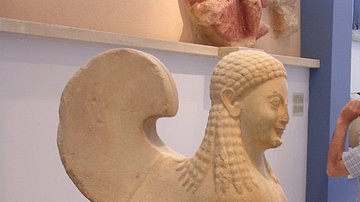
Definition
Sphinx
A sphinx is a mythical creature with the body of a lion, most often with a human head and sometimes with wings. The creature was an Egyptian invention and had a male head - human or animal; however, in Greek mythology, the creature had the...

Definition
Lysander
Lysander (d. 395 BCE) was a Spartan statesman and general who famously defeated the Athenian navy at the Battle of Aigospotamoi in 405 BCE, which finally won the Peloponnesian War. Lysander gained a reputation for a fiery personality, daring...
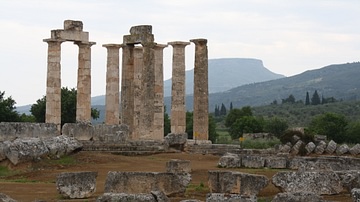
Definition
Nemea
Nemea was a religious sanctuary in the northern Peloponnese of Greece where pan-Hellenic athletic games were held every two years from 573 BCE until 271 BCE, after which, the Games were definitively moved to Argos. Early Settlement Situated...

Definition
Solon
Solon (c. 640 – c. 560 BCE) was an Athenian statesman, lawmaker, and poet, who is credited with restructuring the social and political organisation of Athens and thereby laying the foundations for Athenian democracy. Such were his accomplishments...

Video
The Greek God Apollo: The Myths of the Olympian God of Music, Medicine, the Sun and Archery
The god Apollo in Greek mythology is the Olympian god of, well, quite a lot! Apollo is associated with the bow, music, divination, the sun, poetry, healing and medicine and, who would have thought, plagues. He was one of the most loved gods...